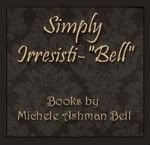


This woman does it all. I visited her web-site to find out more about her and by the time I was done perusing her umpteen accomplishments, I needed a nap. What a woman! She writes novels, business books, inspirational books and Southern romances.
Marnie L. Pehrson was born and raised in the Chattanooga, Tennessee area. An avid enthusiast of family history, Marnie integrates elements of the places, people and events of her Southern family and heritage into her historical fiction novels. Marnie’s life is steeped in Southern history from the little town of Daisy that she grew up in to the 24 acres bordering the famous Chickamauga Battlefield upon which her family resides.
Marnie and her husband Greg are the parents of six children. She is the founder of multi-denominational SheLovesGod.com which hosts the annual SheLovesGod Virtual Women’s Conference in October each year. Marnie has served in many capacities within her church in presidencies of the women’s, young women’s, and children’s organizations, as a Sunday School teacher and pianist. Service as family history consultant inspired her foray into historical fiction.
Marnie is also an internet developer and consultant who helps talented professionals deliver their message to the online world. You may visit her projects through www.PWGroup.com and www.IdeaMarketers.com.
You may also read more of her work at www.MarniePehrson.com and www.SouthernLit.com. Marnie welcomes reader comments and may be reached at marnie@marniepehrson.com or by calling 706-866-2295.

About her newest book, An Uncertain Justice
On a sunny afternoon in March 1922, Deputy Sheriff Morton was gunned down in cold blood, and his grandson, Sherman, wants revenge. For Sherman, only an eye-for-an-eye retribution will serve the demands of justice, but elements of the community feel differently. Soon the national media ignites a frenzy amongst boys' organizations across the country, coaxing the governor to consider a stay of execution for the two youths responsible for the crime.
As Sherman's anger and frustration increase, his life begins to unravel--affecting his job and his relationship with the girl he loves.
This riveting true story about the last legal hanging in Georgia captured the attention of a nation, but more importantly, it racked the soul of a boy who dearly loved his grandfather. How does one deal with the long-lasting effects of murder? Does a punishment ever fit the crime? Is it possible, or even necessary to forgive a murderer? Find out within the pages of An Uncertain Justice, a look into the scope of justice and mercy that will make you question what you believe.
What Readers Are Saying...
"Murder evokes anger, and anger exacts revenge, but what about mercy?
This fast-paced drama is as compelling as it is riveting!
You'll never look at justice and mercy the same way again. "
- Jennifer Youngblood, Bestselling author of STONEY CREEK, ALABAMA
"This is a fantastic book - it will have you crying, wanting to wrestle certain characters down for the three-count, hugging others - I feel like I know each of them personally. I rode the roller coaster from empathy to anger to contentment. Marnie, you're a great author!"
- Lisa Rae Preston
I was completely caught up in this story and several times while reading it reminded myself that it was based on a true story. I found myself thinking of it during the day and wondering how it was all going to play out. Marnie writes in a powerful way and this compelling story with linger long after you've read the last page.
I had the privilege of visiting with Marnie. Here's my interview with her:
M.B.: When did you first know you wanted to be an author?
Marnie: Back in about 1994 I wrote my first self-help book and put on my goal list to write a novel and have it on Deseret Book shelves. I put that piece of paper away and didn't think anything of it until I found it in a folder about twelve years later and the deed was done. Odd thing was I never even tried my hand at fiction until about 2004.
M.B.: What was the pathway like for you to get your first book published?
Marnie: After my first series of rejection letters, I decided to go the route of self-publishing. I've never been one to wait around for someone else to make my dream come true. If I can figure it out, I'll do it myself and usually end up teaching other people how to do it too. I self-published eight or nine books before I ever got published by an "official" publishing house. Granite published two of my shorter novels in their Love Notes Series – Hannah's Heart and Savannah Nights.
Self-publishing gave me time to perfect my craft, learn about marketing books, and the publishing process. I doubt Granite ever would have published my books had I not finally worked with a good editor who taught me the ins and outs of good writing. While readers didn't notice I wasn't following the rules, publishers did. It made a big difference.
M.B.: Were you ever discouraged along the way? If so, how did you deal with it?
Marnie: Of course, lots of times. Especially when I received professional criticism. My response? I'm human. I got mad. I defended myself, but finally I stood back and asked, "Do they have a point?" Most of the time they did and I dug back in to perfect my craft. I've learned from 20 years in business that you don't take criticism personally, but you should step back and see if it holds validity. Some of my best products and services over the years have been developed because a customer complained. The best writing I've done has been because a critic gave me a bad review.
M.B.: What is your writing schedule like?
Marnie: Right now, I write when I feel like it. It's very unstructured. But I'm taking a bit of a break.
M.B.: Where do your ideas come from? How do you know the idea is
good enough to write a book about it?
Marnie: Most of my novels come from family history stories or are sparked by family history. My non-fiction inspirational comes from the lessons I've learned in life – generally from the school of hard knocks. It's easy to tell if a nonfiction subject will resonate with people. I write an article about it or a blog and see what kind of interest it generates. If it hits a nerve with people, I know I have a good topic. Reader feedback is so important.
With fiction, I have a core group of people that I respect and trust – authors, editors, and friends who read a lot. I often pitch an idea to that core group and see what they think.
M.B.: What words of advice do you have for other writers who desire to
have their manuscripts become books in print?
Marnie: Keep writing and explore your motivations. If you dream of fame and fortune, perfect your craft. Learn how to write killer book proposals and hire a good editor to help you with your book. Most of all, pray for a miracle because odds are against you in the book industry.
If the satisfaction of having a book in print and knowing you're leaving a legacy is what matters to you, then self-publishing is a great way to go. Some of us primarily want to get our thoughts out and to leave a record of our beliefs or our creativity. If writing is this for you, it doesn't really matter if the publishing world takes notice. If they won't give you the time of day, self-publish!
M.B.: What is your process of brainstorming a story? Do you just sit
down and write, waiting to see what happens next? Or do you outline
first?
Marnie: It depends on whether it's a true story or not. If I'm writing a historical that needs to be true to facts, I use a timeline and an outline. Some of my favorite stories have come by sitting down and free-flow writing. I write a scene with characters, let them make choices and see where it takes me. I love when that happens. It's fun. It's like play.
M.B.: Do you ever experience a snag in a story, a form of writer's
block? If so, how do you deal with it?
Marnie: Definitely. One of my favorite ways to deal with this is to first get clear about where I'm stuck. For example, I might need a way to get my characters to a safe location after being chased by moonshiners. So I get clear about that, pray for help, and then lie down for a catnap. When I wake up, the scene is often right there.
M.B.: Do you need absolute quiet to write? Do you listen to music when you are writing?
Marnie: I listen to music. Most of my novels have soundtracks.
M.B.: What kinds of inspiration do you use during your story creation periods?
Marnie: I go for walks in nature, read through historical records, look up national and world events from the time period I'm writing about, and watch movies about the era.
M.B.: Who has made the greatest difference for you as a writer?
Marnie: Tough call. It's hard to reduce it to one. Can I pick three? Marcia Lynn McClure for starters. I wouldn't have ever tried fiction if it weren't for Marcia's encouragement and sharing her audience with me. Then there's Julie Bellon who taught me the rules of good writing. She worked with me extensively on Angel and the Enemy and helped me get my two LoveNotes up to speed for Granite. My last novel, An Uncertain Justice, was completely a step into the dark – a literary fiction outside the genre box with unconventional routes for telling the story. Kerry Blair helped me so much with story arch, themes, character development, and editing. I never could have done justice to that story without Kerry and her faith in it.
M.B.: Do you use a critique group during the writing process? Why or why not?
Marnie: I do have a few people who read as I write. I like having one or two people reading because they keep me going. Their excitement about the story keeps me motivated to finish. I also like to hear where they think it's going so that I don't make the story too predictable.
M.B.: Which of your books is your favorite, and why?
Marnie: A few years from now, I'm sure I'll say An Uncertain Justice because it's definitely my best work. At the moment, the headaches of editing and rewriting are so fresh I'm not as enthusiastic as I should be about reading it again!
M.B.: Any final words you would like to share
Marnie: I believe there is beauty in the stories of ordinary people. That is why I love writing about my ancestors. Through the writing process, I come to know them as real people instead of names on a pedigree chart. I step into their time, and walk alongside them through their struggles. They strengthen me in the process. I will never look at the concepts of mercy, justice, and forgiveness the same way as I did before writing An Uncertain Justice.
I feel that writing my family's story brings meaning to their suffering. Now, my second great-grandfather didn't die for nothing. His family didn't suffer without him for no reason. The world can be blessed by their story. I'm just idealistic enough to believe that that holds eternal significance.
M.B.: Where can our readers go to find your books and order them?
Marnie: Thank you, they can go to www.MarniePehrson.com or www.SouthernLit.com
One more thing . . . A lot of people ask me about self-publishing. So I've put together some resources for them at http://www.ideamarketers.com/services/selfpublishingresources.cfm




























































-page-001.jpg)














3 comments:
She sounds like a remarkable woman. Her book sounds intriguing. I'll have to check it out. Thanks for the great interview.
Wow, sounds like a great book! I love Marnie's writing:-)
INteresting! That's some great advice. Thanks for taking the time to do this!
Post a Comment